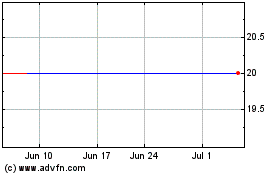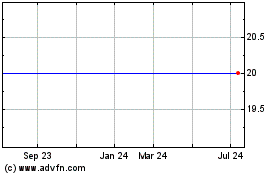Cardiovascular Systems, Inc. (CSI) (Nasdaq: CSII), will present
six-month data from the COMPLIANCE 360° study of severely calcified
above-the-knee lesions at the 23rd Annual Transcatheter
Cardiovascular Therapeutics (TCT) scientific symposium in San
Francisco, sponsored by the Cardiovascular Research Foundation, on
November 8, 2011.
COMPLIANCE 360° is a prospective multi-center study comparing
treatment using CSI’s Diamondback 360° device versus percutaneous
transluminal angioplasty (PTA). Dr. Raymond Dattilo, St. Francis
Health Center, Topeka, Kan., principal investigator of the
COMPLIANCE 360° study, will present his findings in an oral
presentation on Tuesday, November 8. (Oral presentation No. 93,
Moscone Center Room 112, 10:15 a.m.-12:30 p.m.)
“CSI is committed to amassing clinical data on our technology to
help physicians make sound treatment decisions for their patients.
We look forward to presenting results from six different studies
next week at TCT,” said David L. Martin, CSI president and chief
executive officer.
Along with COMPLIANCE 360° results, data from several additional
studies will be highlighted during TCT poster sessions.
Peripheral Arterial Disease Clinical Study Results
Three studies will focus on results for treatment of peripheral
arterial disease (PAD), or blockages in leg arteries.
- Six-Month Outcomes of Prospective,
Randomized CALCIUM 360° Study Demonstrate the Advantages of Plaque
Modification with the Orbital Technology Versus Treatment with
Balloon Angioplasty in Patients with Critical Limb Ischemia,
presented by Dr. Nicolas W. Shammas, Trinity Medical Center,
Bettendorf, Iowa. (Poster No. 570, Moscone Center Hall D, 8-10
a.m.)
CALCIUM 360° is a prospective, multi-center
randomized study comparing treatment of below-the-knee lesions with
the Diamondback 360° versus percutaneous transluminal
angioplasty.
- CONFIRM II Predator data, presented by
Dr. Gaurav Aggarwala, Utah Cardiology, Layton, Utah. (Poster No.
560, Moscone Center Hall D, 8-10 a.m.)
CONFIRM II Predator is a prospective registry
of 1,127 patients treated with the Predator 360°, collected by 153
investigators at 122 institutions. The study is designed to
determine device utility and procedural success in a real-world
patient population.
- Use of Orbital Treatment in a High
Volume Clinical Practice Modifies Non-Compliant Plaque to Deliver
Durable Long-Term Results, presented by Dr. Prakash Makam,
Community Hospital, Munster, Ind. (Poster No. 576, Moscone Center
Hall D, 8-10 a.m.)
Dr. Makam will report on a single-center
study of 46 patients with fibrotic or calcified lesions who were
treated with the Predator 360°.
Coronary Arterial Disease Clinical Study Results
Two poster presentations by Dr. Keyur Parikh, Care Institute of
Medical Science, Ahmedabad, India, will review data from ORBIT I, a
feasibility study for a coronary application using CSI’s orbital
mechanism of action.
- Six-Month Follow up Data of Orbital
Atherectomy System for the Treatment of De Novo Calcified Coronary
Lesions (Poster No. 643, Moscone Center Hall D, 8-10 a.m.)
- Two-Year Follow up Data of Orbital
Atherectomy System for the Treatment of De Novo Calcified Coronary
Lesions – A Single Center Experience (Poster No. 647, Moscone
Center Hall D, 8-10 a.m.)
About Peripheral Arterial DiseaseAs many as 12 million
Americans, most over age 65, suffer from PAD, which is caused by
the accumulation of plaque in peripheral arteries (commonly the
pelvis or leg) reducing blood flow. Symptoms include leg pain when
walking or at rest. Left untreated, PAD can lead to severe pain,
immobility, non-healing wounds and eventually limb amputation. With
risk factors such as diabetes and obesity on the rise, the
prevalence of PAD is growing at double-digit rates.
Millions of patients with PAD may benefit from treatment with
the Stealth 360°, Predator 360°, or Diamondback 360⁰ devices,
minimally invasive catheter systems developed and manufactured by
CSI. These systems use a diamond-coated crown, attached to a guide
wire, which sands away plaque while preserving healthy vessel
tissue, or medial integrity — a critical factor in preventing
reoccurrences. Balloon angioplasty and stents have significant
shortcomings in treating hard, calcified lesions. Stents are prone
to fractures and high recurrence rates, and treatment of hard,
calcified lesions often leads to vessel damage and suboptimal
results.
About CRF and TCTThe Cardiovascular Research Foundation
(CRF) is an independent, academically focused nonprofit
organization dedicated to improving the survival and quality of
life for people with cardiovascular disease through research and
education. Since its inception in 1991, CRF has played a major role
in realizing dramatic improvements in the lives of countless
numbers of patients by establishing the safe use of new
technologies, drugs, and therapies in the subspecialty of
interventional cardiology and endovascular medicine.
Transcatheter Cardiovascular Therapeutics (TCT) is the annual
scientific symposium of the Cardiovascular Research Foundation. TCT
gathers leading medical researchers and clinicians from around the
world to present and discuss the latest developments in the
field.For more information, visit www.crf.org.
About Cardiovascular Systems, Inc.Cardiovascular Systems,
Inc., based in St. Paul, Minn., is a medical device company focused
on developing and commercializing innovative solutions for treating
vascular and coronary disease. The company's Stealth 360°TM,
Diamondback 360® and Predator 360® PAD Systems treat calcified and
fibrotic plaque in arterial vessels throughout the leg in a few
minutes of treatment time, and address many of the limitations
associated with existing surgical, catheter and pharmacological
treatment alternatives. The U.S. FDA granted 510(k) clearance for
the use of the Diamondback 360° in August 2007, the Predator 360°
in March 2009 and for the Stealth 360° in March 2011. To date, more
than 55,000 PAD procedures have been performed using CSI's PAD
systems in leading institutions across the United States.
CSI has also commenced its ORBIT II Investigational Device
Exemption clinical trial to evaluate the safety and effectiveness
of its orbital technology in treating coronary arteries. The
coronary system is limited by federal law to investigational use
and is currently not commercially available in the United
States.
For more information, visit the company’s website at
www.csi360.com.
Product DisclosureThe Stealth 360°TM, Diamondback 360®
and Predator 360® PAD Systems are percutaneous orbital atherectomy
systems indicated for use as therapy in patients with occlusive
atherosclerotic disease in peripheral arteries and stenotic
material from artificial arteriovenous dialysis fistulae. The
systems are contraindicated for use in coronary arteries, bypass
grafts, stents or where thrombus or dissections are present.
Although the incidence of adverse events is rare, potential events
that can occur with atherectomy include: pain, hypotension,
CVA/TIA, death, dissection, perforation, distal embolization,
thrombus formation, hematuria, abrupt or acute vessel closure, or
arterial spasm.
Cardiovascular Systems (NASDAQ:CSII)
Historical Stock Chart
From Jun 2024 to Jul 2024

Cardiovascular Systems (NASDAQ:CSII)
Historical Stock Chart
From Jul 2023 to Jul 2024
